This Holocaust Remembrance Day, survivors have a message: Don't let history 'repeat itself'
It took Fred Kurz five decades before he could talk about his experiences during the Holocaust.
He didn't think his story was important, he said, and it was painful to relive it. He couldn't even talk with his sister, Doriane, who died in 2005, about what they had both endured, other than give a knowing glance or nod when something reminded them of their lives during World War II ‒ and they were so close, "we were one person."
"It was too hard," he said. "It was terrible to think about it. We tried to put it out of our heads."
But in 1993, his Southern New Jersey synagogue planned a Holocaust remembrance event, and a rabbi asked Kurz to share his story, one the rabbi hadn't even really heard himself. He asked Kurz to tell it, just to him, so Kurz did.
After Kurz finished, the astonished rabbi told him, "You have a story that really needs telling," and so, "with great trepidation," Kurz began speaking about his past: to synagogues, schools, churches and other organizations. He's been doing it ever since.
Kurz is one of several Holocaust survivors now telling their stories in short videos as part of an international effort to tackle Holocaust denialism and hate speech. The effort coincides with Yom Hashoah, on Sunday and Monday, the Holocaust observance that lines up with the Hebrew calendar.
Amid concerns over rising antisemitism in the U.S. and tensions over the Israel-Hamas war, Kurz says the message couldn't be more timely: "As long as I am able to speak, I want the world to understand how close we are getting to the same conditions, the prejudices, and how to avoid that."
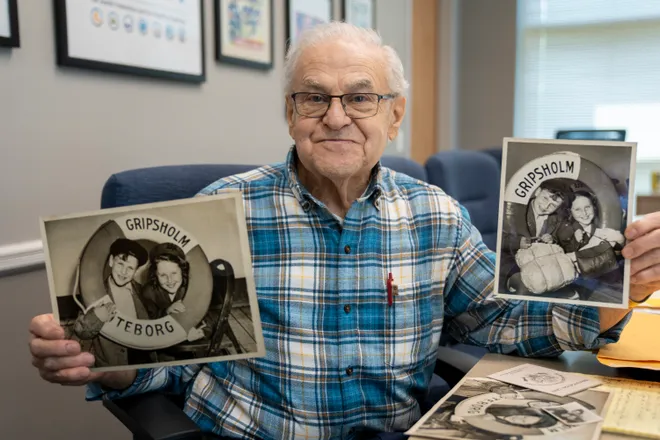
'The world should never forget'
"My story specifically isn't important," the now-87-year-old told USA TODAY. "What is important is to know what the conditions were, that the world should never forget how it happened. ... Those conditions, what happened to my family, should never happen again."
But Kurz's story is compelling, one of a successful extended family with a thriving business, a resourceful and selfless mother and two resilient children who were just 9 and 10 when the war ended: The family lived in Holland while his father was working for his family's multinational optical company. His father was arrested on the street, then sent by the Nazis to a succession of camps before he was killed in the gas chambers at Auschwitz.
His mother tried to protect Fred and Doriane, entrusting their safety to the Dutch Underground which hid the children when she was arrested. The siblings were briefly reunited with their mother − but all three ended up at Bergen-Belsen, another notorious camp, where they endured horrifying conditions. Even their liberation was bittersweet, Kurz said, because they had no food or water for two weeks and their mother was ill with typhus. Soon, they lost her, too.
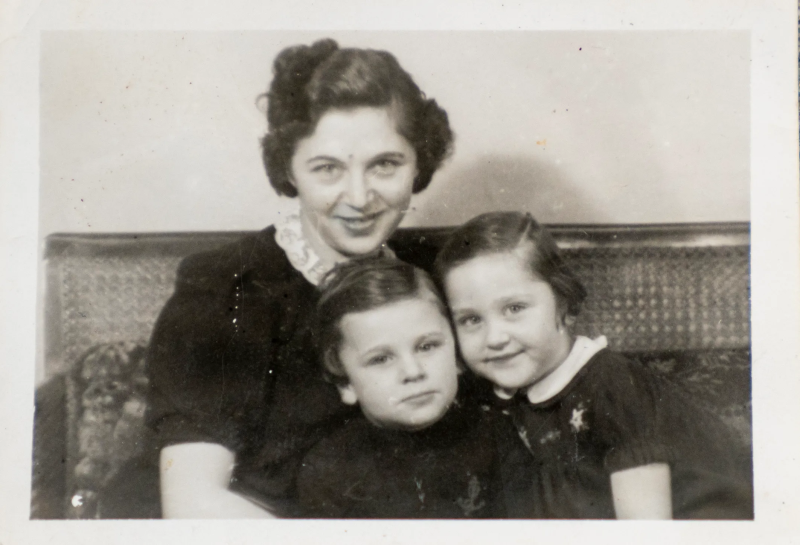
Kurz and his sister were eventually brought to live with an aunt, uncle and two young cousins in Brooklyn. He attended Columbia University − now the site of clashes between police and pro-Palestinian protesters − and became an engineer, working for RCA and General Electric, raising his three daughters with his wife, Rachel, in their Cherry Hill, New Jersey, home.
When the Claims Conference on Jewish Material Claims Against Germany, a New York-based nonprofit that advocates for Holocaust survivors all over the world, asked him to be part of its #CancelHate campaign to coincide with Holocaust Remembrance Day, Kurz said he immediately agreed.
"Hate speech is a primary cause of increasing antisemitism, which has recently found its way back into our American society," Kurz says in his video. He recalls how Hitler used Jews as scapegoats, and how Jews were rounded up, brutalized and systematically murdered.
"My concern that I am addressing today is a similarity of unchecked hate speech against many minorities in our society, but particularly Jews, which could lead to tragic events as it did in Nazi Germany. Everyone who understands the dangers that hate speech is doing to our great country needs to speak up, to be the voice of reason, so that history will not repeat itself as it did decades ago.
"Your words matter."
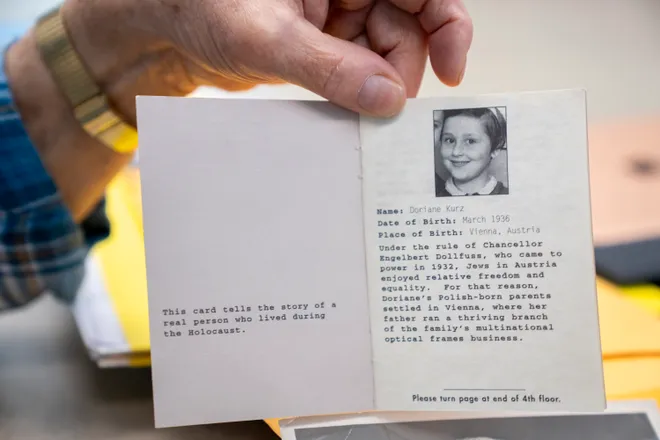
'A tsunami of antisemitism' makes campaign 'more timely'
#CancelHate gives Holocaust survivors an opportunity to confront those who deny, distort or try to minimize their experiences, said Greg Schneider, executive vice president of the Claims Conference.
In the wake of the Oct. 7 attack on Israel by Hamas and the ensuing war in Gaza, there has been "a tsunami of antisemitism, Jew hate and Holocaust denial," said Schneider, making the campaign, planned before the events of Oct. 7, "more urgent, more timely and more needed than ever."
"There are people out there calling these survivors liars," he said. It's "like their loved ones are being murdered a second time. It's not easy for them to go through this, but we've asked them to because it's one of our last opportunities. It's important for us to record their voices while we still have them."
A 2020 Claims Conference survey found "a worrying lack of basic Holocaust knowledge" among millennials and Generation Z, something the nonprofit called "a growing problem as fewer and fewer Holocaust survivors – eyewitnesses to a state-sponsored genocide – are alive to share the lessons of the Holocaust." About 1 in 10 (11%) of that generational cohort thought Jews caused the Holocaust, the survey found, and nearly half (49%) reported they had seen Holocaust denials or distortions on social media.
"We ask survivors to do this, but we know it's painful and triggering, and it brings up the most painful memories of their lives," Schneider said. "Yet everyone we asked said yes. They feel it is their responsibility to their families who were murdered and for their children and grandchildren, and all of our children and grandchildren."
Social media, where so much of the antisemitism and hate proliferates, "is a tool that can be used for good or bad," Schneider said. But it can also amplify fringe voices, drive outrage and anger, and turn into an echo chamber of harmful, hateful ideas, he said. "We have to break that cycle."
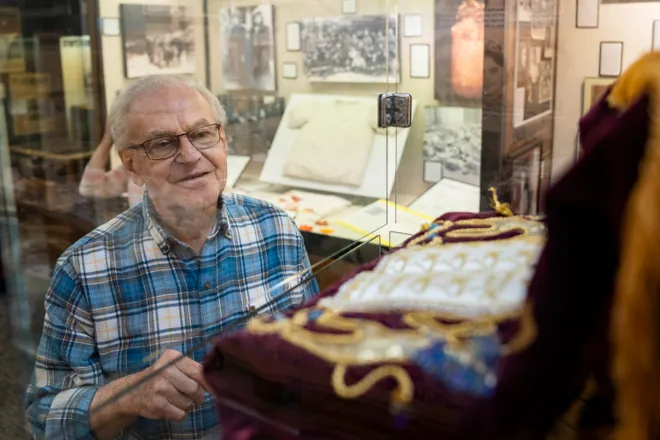
'The obligation to bear witness'
Abe Foxman is known as an activist, lawyer and longtime national director of the Anti-Defamation League. But his story began in hiding: The only child of Polish Jews who fled to Lithuania, he was given to his nanny, a Catholic, as an infant to protect him as the Nazis took over and his parents were forced into the Vilna ghetto. His nanny had him baptized and began raising him, keeping him from other children lest his true identity be revealed.
Foxman, who is among the survivors participating in the #CancelHate campaign, was reunited with his parents, who had miraculously survived, four years later. But he lost his grandparents and 13 aunts and uncles in the Holocaust, and though he remembers his nanny as his protector and savior, his parents had to engage in a custody battle to get him back.
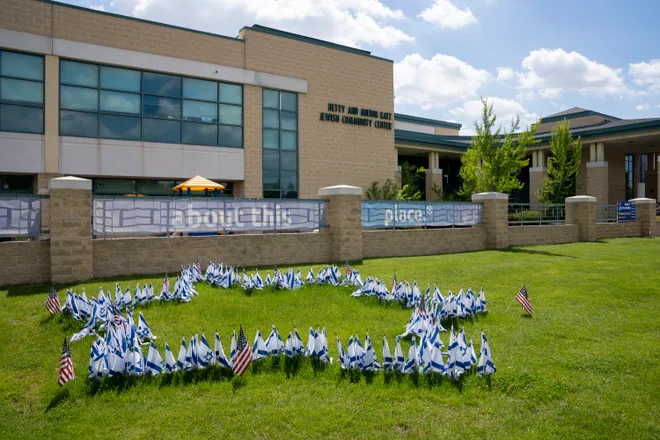
Survivors were initially reluctant to tell their stories, he said. Not just because it was painful for them, but because many didn't want their children to know their parents' suffering. But as they aged, they began to realize how important it was to speak up, to preserve their stories and to ensure that horrible chapter in history was never repeated.
The conversation around the Holocaust has changed, and Foxman believes the emphasis is now where it belongs: "It used to be about the perpetrators. Now it's much more about those who perished: how they lived, the art they created, who they were. Before, we were too preoccupied with those who destroyed our culture."
Denialism "is very personal, like an assault on who you are," said the 84-year-old, who didn't know the extent of his own story until he was in college and did a report on the ghetto where his parents were confined. "Words matter, and if we can cancel this hate by bearing witness to it, we will do it."
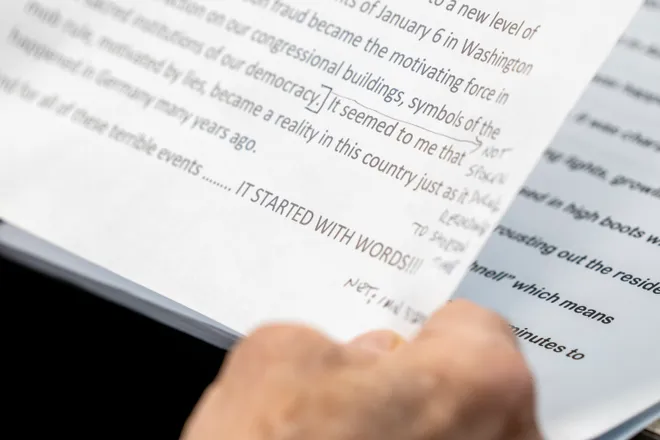
Jewish tradition reveres the power of words, he said. "Words have the power of life and death," and words were so precious to Jews during the Holocaust that some even bartered what little food they had for paper on which to keep diaries "because they feared no one would know that they'd lived or how they died."
A frequent refrain from survivors, especially in the #CancelHate campaign, is how insidiously hatred creeps into a society.
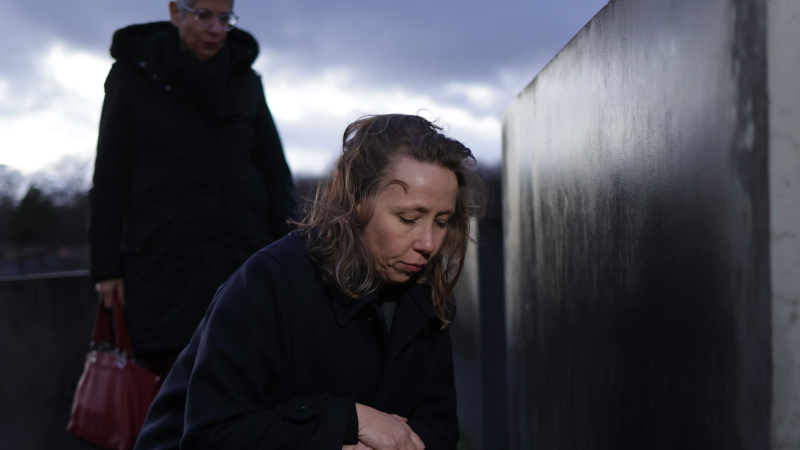
"It didn't happen in one fell swoop," said Kurz, but in increments, in escalating acts of degradation and violence, in words said and not said. "The mobs were motivated by lies, and all of this began with words."
Contact Phaedra Trethan by email at ptrethan@usatoday.com, on X (formerly Twitter) @wordsbyphaedra, or on Threads @by_phaedra.
Disclaimer: The copyright of this article belongs to the original author. Reposting this article is solely for the purpose of information dissemination and does not constitute any investment advice. If there is any infringement, please contact us immediately. We will make corrections or deletions as necessary. Thank you.






